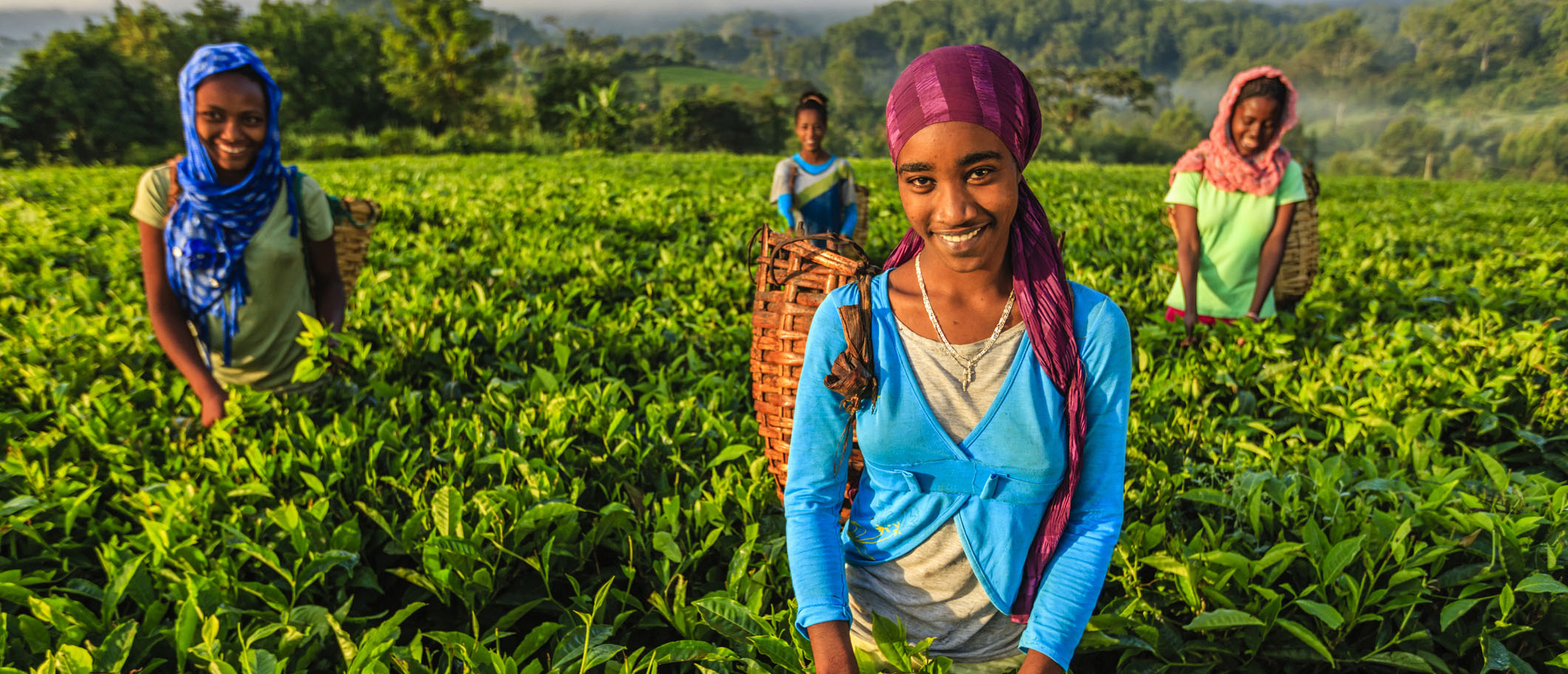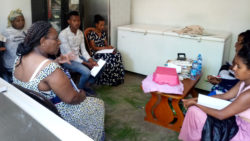
Making Connections: Providing Mentorship Opportunities to Young Entrepreneurs in Ethiopia
In Ethiopia, women perform around 70 percent of farm work.[1] They are also responsible for the majority of household chores, which means they have less time to pursue profitable business activities on and off the farm. When they do participate in income-generating activities, they face limited access to resources, credit, decision-making authority, and leadership opportunities, which further impedes their success. As a result, women farmers in Ethiopia achieve agricultural yields that are up to 35 percent lower than that of their male counterparts.[2]
Tsigie Girma runs a successful dairy processing business in Amhara Region. Five years ago, she was selling milk out of another person’s shop. Now, after growing her business and expanding into the poultry value chain, she is a private distributor who manages four employees. As chief of the Amhara Women Entrepreneurs Association, Tsigie is also an influential role model in her community.
The United States Agency for International Development (USAID) Feed the Future Ethiopia Value Chain Activity (FTFE VCA) addresses barriers to success for women farmers through a peer mentorship program. Banyan Global, as a subcontractor to Fintrac, leads the program’s implementation through its team of regional gender and youth specialists who link established producers working in livestock and poultry with women and youth who are interested and committed to pursuing similar businesses. The mentors share their experiences with their mentees, helping them to improve their technical and business skills while also increasing their confidence and leadership skills. Through peer learning, mentors and mentees empower each other to address some of the real social and economic barriers they face. The project’s work complements the Government of Ethiopia’s Agricultural Growth Program, which places importance on gender and youth inclusion in the agricultural sector.
Tsigie participates in the FTFE VCA mentorship program by leading a mentorship group for three young women and two young men in the dairy sector who are part of a youth-owned enterprise called Fekadu, Zerfalem and Friends. She provides regular business advice and consultation services. With her role at the Amhara Women Entrepreneurs Association, Tsigie can link her mentees with new business connections and social networks. According to one of her mentees, “[Tsigie] is not only an advisor but she is also our role model; we learn integrity and confidence from her.”
In addition to providing face-to-face interaction with Tsigie, the mentorship program offers an opportunity for the mentees to collaborate to enhance their business together. For example, after touring Tsigie’s farm and learning from her experience, the mentees decided to diversify their business for greater profit. Under Tsigie’s guidance, they developed an action plan to purchase a cream separator and butter churning machine so that they could begin processing butter and cheese in addition to milk. Now, Fekadu, Zerfalem and Friends operates a cafeteria where they serve a variety of homemade products, including milk, butter, and cheese. Their purchase of additional equipment has more than doubled their daily incomes and created jobs for five youth. Their improved business skills have also boosted their confidence — they are currently exploring ways to expand their new venture even further by opening shops in other areas.

Tsigie Girma speaks to a group of mentees.
Through the FTFE VCA mentorship program, Banyan Global has linked 30 mostly female mentors with 316 mentees to date across Amhara, Tigray, Oromia, and Southern Nations, Nationalities, and People’s Regions in the poultry, dairy, meat, and live animal value chains. The program provides young people with the opportunity to increase their business skills and confidence, allowing them to pursue new income-generating opportunities. At the same time, mentors expand their networks and give back to their communities, which increases their businesses’ reach. Ultimately, women and youth involved in the program enjoy greater access to resources, decision-making power, and leadership opportunities.
[1] UN Women, Preliminary Gender Profile of Ethiopia. UNWomen.org, 2014. Page 42.
[2] Ibid.
